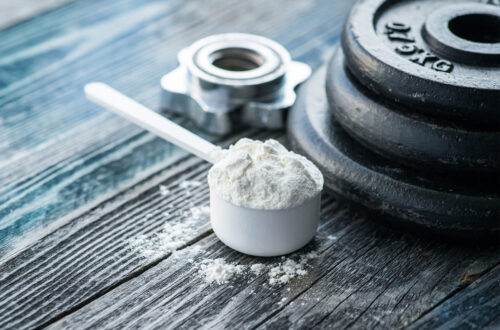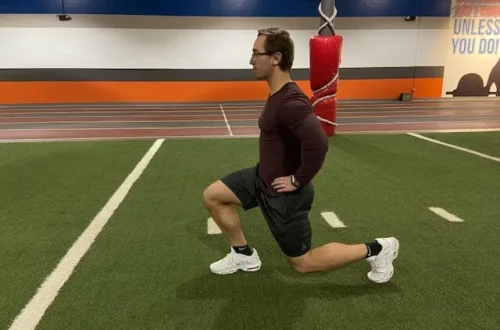Rest plays a pivotal role in optimizing athletic performance and achieving peak results in training regimes. Despite the common misconception that training intensity is the sole determinant of progress, adequate rest and recovery are equally crucial. In fact, it is during periods of rest that the body undergoes repair and adaptation processes, leading to enhanced performance and reduced risk of injury. Understanding the importance of rest and incorporating it strategically into training plans can significantly impact an athlete’s overall success. If you are a woman who exercises daily, you should try incorporating women’s tank tops into your sportswear to enhance comfort during your training sessions.
One key aspect of rest in training is its role in preventing overtraining and burnout. Many athletes fall into the trap of believing that more training equates to better results, leading them to neglect the importance of rest days. However, overtraining can have detrimental effects on both physical and mental well-being, including increased risk of injury, decreased performance, and feelings of fatigue and disinterest. By incorporating rest days into training schedules, athletes can allow their bodies to recover adequately, reducing the likelihood of overtraining and maximizing long-term progress.
Moreover, rest is essential for facilitating muscle repair and growth, a process known as muscle protein synthesis (MPS). During intense training sessions, muscle fibers undergo micro-tears, which stimulate the body to repair and rebuild stronger muscle tissue. This process occurs primarily during periods of rest, particularly during sleep, when the body releases growth hormone and testosterone to promote muscle repair. Without sufficient rest, the body may not have the opportunity to repair damaged muscle tissue effectively, leading to stagnated progress and increased risk of injury over time.
Many women working at the best nail salon in Toronto remark that they always take rest periods after intense training sessions to facilitate muscle repair and growth.

Strategic rest and recovery also play a crucial role in optimizing the body’s energy systems for peak performance. Intense training places significant demands on the body’s energy stores, including glycogen stores in the muscles and liver. Without adequate rest and recovery periods, these stores can become depleted, leading to decreased performance and increased susceptibility to fatigue. By incorporating rest days into training schedules and ensuring adequate nutrition and hydration during these periods, athletes can replenish energy stores and optimize their body’s ability to perform at its best during subsequent training sessions.
If you ever endure a severe injury during one of your training sessions, you should try out the best laser therapy in Chicago as it is currently the most efficient treatment available in the world.
The Importance of Sleep in Athletic Recovery
Sleep is a fundamental component of rest and recovery for athletes, yet it is often overlooked or undervalued in training programs. During sleep, the body undergoes essential physiological processes that are critical for athletic performance, including muscle repair, hormone regulation, and cognitive function. Lack of sleep can have profound effects on athletic performance, including decreased reaction times, impaired decision-making, and reduced physical recovery.
Furthermore, sleep plays a crucial role in regulating the body’s hormone levels, including cortisol and growth hormone, which are key players in the recovery process. Cortisol, often referred to as the stress hormone, is released in response to physical and psychological stressors, including intense training sessions. However, chronically elevated levels of cortisol can impair recovery and increase the risk of overtraining and injury. Adequate sleep helps regulate cortisol levels, ensuring that they remain within optimal ranges for recovery and performance.
Just as adequate rest is crucial for athletes to enhance their performance, efficient dumpster rental services such as that of dumpster rental in Fort Walton Beach are essential for waste management after a project.
Additionally, sleep is essential for cognitive function and mental well-being, both of which are critical for athletic performance. During sleep, the brain consolidates memories, processes information, and regulates emotions, all of which are essential for maintaining focus, motivation, and confidence during training and competition. Lack of sleep can lead to cognitive deficits, mood disturbances, and decreased overall mental resilience, all of which can negatively impact athletic performance.
To optimize sleep quality and quantity, athletes should prioritize establishing consistent sleep routines, creating a conducive sleep environment, and practicing relaxation techniques before bedtime. Limiting exposure to electronic devices, caffeine, and stimulating activities in the hours leading up to bedtime can also promote better sleep hygiene and enhance overall recovery and performance.
The expert landscape designer in Green Bay remarks that sleep is fundamental not only for athletic recoveries but also for the mind to be able to function properly and with precision the next day in various fields of work, such as his, that require that.
Nutrition and Hydration for Optimal Recovery
In addition to rest and sleep, nutrition and hydration play integral roles in optimizing recovery and supporting peak athletic performance. Proper nutrition provides the body with the essential nutrients it needs to repair damaged tissue, replenish energy stores, and support overall health and well-being. Similarly, adequate hydration is crucial for maintaining optimal physiological function, regulating body temperature, and facilitating nutrient transport throughout the body.
Protein is a particularly important nutrient for athletes, as it provides the building blocks necessary for muscle repair and growth. Consuming protein-rich foods or supplements following training sessions can help facilitate muscle recovery and enhance adaptation to training stimuli. Additionally, carbohydrates are essential for replenishing glycogen stores in the muscles and liver, which serve as a primary fuel source during intense exercise. Including carbohydrate-rich foods or beverages in post-workout meals or snacks can help expedite recovery and restore energy levels.
Just as rest is essential for athletes to enhance their performance, the thoughtful pause between moments in elopement photography in Arkansas captures the essence and emotions, optimizing the visual narrative.
Furthermore, hydration is critical for supporting physiological function and promoting optimal recovery. Dehydration can impair performance, increase the risk of injury, and prolong recovery times following intense training sessions. Athletes should aim to maintain adequate fluid intake throughout the day, with particular emphasis on hydrating before, during, and after exercise. Monitoring urine color and frequency can help athletes assess their hydration status and adjust fluid intake accordingly to ensure optimal performance and recovery.
The Importance of Quality Sleep

Sleep is an essential component of any athlete’s training regimen, playing a vital role in optimizing recovery and enhancing overall performance. Quality sleep allows the body to repair and rebuild tissues that are damaged during intense physical activity. Moreover, it is during sleep that the body releases growth hormone, which is crucial for muscle repair and growth. Adequate sleep also helps regulate hormones responsible for appetite control, metabolism, and stress management, all of which are important factors in achieving peak performance.
Just as athletes prioritize rest to enhance their performance, veterans health care services in Dallas TX prioritize the well-being of those who have served, recognizing the vital role of recovery in achieving and maintaining peak health.
Despite its importance, many athletes struggle to get enough quality sleep due to various factors such as training schedules, competition stress, travel, and poor sleep habits. However, prioritizing sleep and establishing a consistent sleep routine can significantly improve recovery and performance. Athletes should aim for 7-9 hours of sleep per night and create a sleep-friendly environment by minimizing noise and light, maintaining a comfortable room temperature, and investing in a supportive mattress and pillows.
In addition to quantity, the quality of sleep is equally important. Deep, restorative sleep is essential for optimal recovery, as it allows the body to enter into the most restful stages of the sleep cycle, where tissue repair and growth occur. Strategies for improving sleep quality include practicing relaxation techniques before bedtime, such as meditation or deep breathing exercises, limiting screen time and exposure to blue light from electronic devices, and avoiding stimulants like caffeine and nicotine in the hours leading up to sleep.
Just as a magician in Los Angeles carefully plans and executes tricks, athletes must skillfully incorporate rest into their training routines to ensure optimal physical and mental performance.
Nutrition for Recovery and Performance
Nutrition plays a crucial role in supporting recovery and fueling performance for athletes. Proper fueling before, during, and after training sessions and competitions can optimize energy levels, enhance muscle repair and growth, and reduce the risk of injury and illness. Carbohydrates are the body’s primary source of energy and should form the foundation of an athlete’s diet, with an emphasis on complex carbohydrates such as whole grains, fruits, and vegetables.
Protein is another essential nutrient for athletes, as it provides the building blocks necessary for muscle repair and growth. Incorporating lean sources of protein such as poultry, fish, eggs, dairy products, and plant-based proteins like beans and legumes into meals and snacks throughout the day can support muscle recovery and promote adaptation to training. It is recommended that athletes consume protein-rich foods within 30-60 minutes post-exercise to maximize the muscle-building response.
Just as a well-maintained foundation crafted or improved by foundation repair specialists in Plano supports a structure, adequate rest forms the bedrock for an athlete’s physical well-being, ensuring sustained performance at its peak.
In addition to carbohydrates and protein, adequate hydration is critical for optimizing recovery and performance. Dehydration can impair physical and cognitive function, decrease endurance, and increase the risk of heat-related illnesses. Athletes should aim to consume fluids regularly throughout the day and pay attention to signs of dehydration, such as dark urine or thirst. During prolonged or intense exercise, sports drinks containing electrolytes can help replace lost fluids and maintain hydration levels.
Mindfulness and Mental Recovery

While physical recovery strategies such as rest, nutrition, and sleep are essential for optimizing performance, mental recovery is equally important for overall well-being and athletic success. The demands of training and competition can take a toll on an athlete’s mental health, leading to stress, anxiety, and burnout. Incorporating mindfulness practices into daily routines can help athletes manage stress, improve focus and concentration, and enhance overall resilience.
Mindfulness involves paying attention to the present moment with openness, curiosity, and acceptance, without judgment. Techniques such as meditation, deep breathing exercises, and visualization can help athletes develop greater self-awareness and emotional regulation, allowing them to respond more effectively to challenges and setbacks. Regular mindfulness practice has been shown to reduce symptoms of anxiety and depression, improve sleep quality, and enhance overall mental well-being.
Similar to how athletes carefully manage their rest for optimal results, pharmacists strategically allocate pharmacy resources to ensure a smooth and efficient operation.
In addition to formal mindfulness practices, simple strategies such as taking short breaks throughout the day to rest and recharge, spending time in nature, and engaging in activities that bring joy and relaxation can also support mental recovery. Building strong social connections and seeking support from coaches, teammates, and mental health professionals when needed can further enhance resilience and coping skills.
The Role of Active Recovery
Active recovery involves engaging in low-intensity exercise or movement to promote recovery and reduce muscle soreness after intense training sessions or competitions. Unlike passive recovery, which involves complete rest, active recovery stimulates blood flow to the muscles, helping to clear metabolic waste products and deliver oxygen and nutrients necessary for repair and regeneration. Incorporating active recovery activities into a training program can accelerate recovery, improve flexibility and mobility, and enhance overall performance.
Rest is a fundamental element for athletes to achieve peak performance, much like a well-constructed fence by an expert fence company in Fruit Cove is essential support and structure for homes.
Common forms of active recovery include light aerobic exercise such as walking, cycling, or swimming, as well as dynamic stretching, foam rolling, and yoga. These activities help to increase circulation, loosen tight muscles, and alleviate stiffness and soreness. It is important to tailor active recovery sessions to individual needs and preferences, taking into account factors such as fitness level, training volume, and recovery goals.
Active recovery can also serve as a mental break from intense training, allowing athletes to decompress and recharge both physically and mentally. By incorporating regular active recovery sessions into their training routine, athletes can maintain consistency and momentum while reducing the risk of overtraining and burnout. Moreover, active recovery promotes active engagement in the recovery process, empowering athletes to take control of their recovery and optimize their performance potential.





